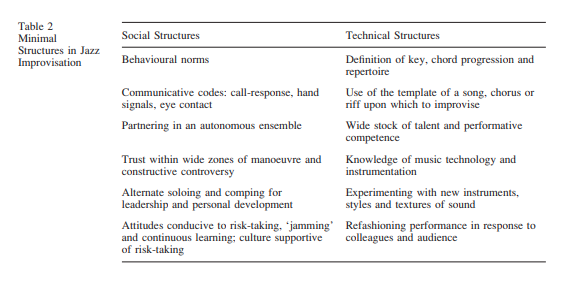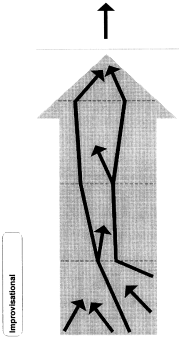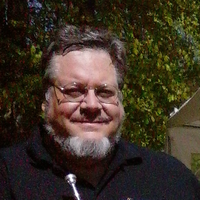How do I begin to learn "jazz trumpet?"
-
I am posting this question as a sticky for two reasons:
- As a classical musician with a degree in trumpet performance, I have always envied the "jazz" trumpeters who could spin a solo like nobody's business.
- Somebody is going to search "how to learn jazz trumpet" on google and land on this page.
This thread is for beginners of jazz trumpet who have a decent foundation in the technique of the instrument and musicianship.
-
Pinned by
 administrator
administrator
-
Well, foremost one must know and constantly be reminded that Jazz is an aural art .Cruising the internet for answers, reading books and articles are all good. But they are a supplement, not the main focus.
First off, listen voraciously. If you don't have the feel ingrained in your consciousness and body, you've missed the joint. So listen endlessly to recordings. Sing along to them, shadowing the rhythms and style. This is very important. Go to as many live performances as you can. Things happen live that may not happen when something is recorded for "posterity". Support and meet local musicians. Don't live in a vacuum.
Practice with Jazz play-alongs like Band-in-a Box, Aebersold, Garage Band, etc.
Start learning improvisation the same way. Go to jam sessions and open-mic nights, Play in groups,
I would start with Aebersold Vols. 1, 2 and 54. Once you've got familiarity with those, I would add The Goal Note Approach by Sheldon Berg.
Read as you go along, Jazz Improvisation by Jerry Coker and How to Practice Jazz by the same author. Read Jazz Biographies. Read and absorb a, IMO, invaluable source of information, Lost Chords by Richard Sudhalter
When you've got the chops, add Jerry Coker's Patterns for Jazz, and Elements of the Jazz Language.
Don't be a stranger to your recorder. You get valuable feedback from it that listening when you play misses, somewhat.
Keep in mind. The aural aspects keep dominance over the written and the intuition has dominance over the analytical.
There's more but if this doesn't keep you occupied for a few years, I'd be surprised. Good luck. Have fun.
-
Everything that Kehaulani wrote, plus spend a lot of time learning to play the old standards, because in my opinion they were and still are a solid foundation for what jazz is all about. I play a dozen or so standards every afternoon as part of my daily practice sessions and I play every chance I get with other jazz lovers.
George -
Listen to "jazz" trumpet players...it's all about learning the language- exactly like speaking.
We imitate and repeat...playing along with recordings is the first step. Chet Baker's ballads worked well for me.
Transcribing the solos is next- not necessary to write the notes down but I like to analyze which note choices he used.
Learning music harmony is also beneficial- connecting the scales and chords for specific songs. -
I second a lot of what has been said here, but would also add that iReal pro is much better for backing tracks than the others mentioned. You can download a huge library of tracks, and use them in any key you want, unlike Abersolds, which sometimes do standards in weird keys. You can also play them in any style, so when you learn more and want to get creative the options are open. It’s also easy to create tracks to go along with books of licks or scales.
Another thing I would highly recommend is finding a big band to play in if you can. One of the things that really changes between jazz and classical are articulations and cutoffs. Spend some time in a section following a decent lead player and you will get better at both. Check out Craig Fraederich’s books - the theory book sets things up pretty simply for jazz beginners and has playing exercises to go along with the written activities. He also has some free stuff on his website that is excellent.
Biggest thing, listen constantly!! Also, listen to more than just trumpet players

-
In a word: Swing.
-
The human state is a huge shoebox full of single entities. The process for learning is to emulate first and then through the coordination of things collected in the shoebox, we get a result.
I would offer that the "beginning" jazz trumpeter with a "classical" mindset needs building blocks and structure to get started. Scales and chords should be memorized. Then Aebersol is much less daunting.The next step is to fill that shoebox with melodies - memorized. Any of the fakebooks are great for standards! They also provide snippets of structure that help us keep from getting lost
-
@rowuk said in How do I begin to learn "jazz trumpet?":Scales and chords should be memorized. Then Aebersol is much less daunting.
To that end, there , you can get free downloads on the Aebersold Site, particularly the Jazz Handbook and the Scale Syllabus.
-
As Louis Armstrong said (paraphrased)
"I play the melody, then I play the melody around the melody, then I play the melody around that melody".Avoid riffs and avoid patterns. Learn to play melodies by ear, learn to hear what key of the moment you are in, and listen to the greats of the past. Sing their solos.
-
The following is illustrative of the response by Trumpetsplus:
https://www.jazzadvice.com/lessons/six-jazz-improvisation-secrets-from-louis-armstrong/
Melody is the key. Being able to sing around the melody is most helpful, and I would say essential in developing an improvisational jazz voice. When you learn to sing a melody around the melody, your have a roadmap to success. This was the foundation Claudio Roditi instilled in me when I took lessons from him in the years I lived in New York City.
Avoiding riffs or patterns? Now, I would caution against a strict rule to "avoiding" patterns or riffs. Riffs and patterns are great techniques to transforming a melodic line into another direction, like an announcement from one reference point to another. Again, let's go back to Louis Armstrong: "Mastering the V7 to I progression is essential for any improviser. In fact, it’s one of the most basic building blocks of functional harmony and an integral part of nearly every jazz standard. The more tools you have for navigating this chord movement the better. And like most things musical, studying Louis Armstrong is a great place to start…"
So using the melodies is key, patterns and riffs can be the glue that threads them together.
-
Social and Technical Structures Used in Developing Jazz Improvisation:

-
Directions Taken that Contribute to Jazz Improvisation. The arrows represent input, implicit or tacit from the performance environment. Note some arrows are ignored, some incorporated, and those incorporated lead in a singular direction toward a structured performance outcome.

-
Regarding phrasing and playing around the melody, learn the lyrics and play them. Tell the story.
Regarding patterns, I agree about the importance of melody and melodic improvisation but there's plenty of room for playing patterns (e.g. Woody Shaw), quotes (e.g. Dexter Gordon) and vertical playing (e.g. Coleman Hawkins). And traditional "classical" techniques are also put to good use, such as sequence (e.g. Paul Desmond).
-
Learning from the Greats. A summary of Jazz Quotes:
Charles Mingus: ‘"You can’t improvise on nothin’, man. You gotta improvise on somethin’". AND "In my music, I am trying to play the truth in what I am. The reason it's difficult is because I am changing all the time.
Wynton Marsalis: "In Jazz, improvisation isn't a matter of just making any ol' thing up. Jazz, like any language, has its own grammer and vocabulary. There's no right or wrong, just some choices that are better than others." AND "Through improvisation, jazz teaches you about yourself. And through swing, it teaches you that other people are individuals too. It teaches you how to coordinate with them."
George Gershwin: "Life is a lot like jazz. It's best when you improvise."
Cecil Taylor: "Improvisation is the ability to talk to oneself."
Sonny Rolins: "I feel that Jazz improvisation is the ultimate. You have to create on the spot, the essence of this music."
Mose Allison: "As far as I'm concerned, the essentials of jazz are: melodic improvisation, melodic invention, swing, and instrumental personality."
Ahmad Jamal: "Jazz Improvisation means that practice is not as straightforward as it would be when you simply have a score to play."
Thelonious Monk: " I don't know were jazz is going. Maybe it's going to hell. You can't make anything go anywhere. It just happens."
Oscar Peterson: "It's group sound that's important. You not only have to know your own instrument, you must know the others and how to back them up at all times.
Miles Davis: "Do not fear mistakes. There are none."
Louis Armstrong: "There are only two ways to sum up music: Either it's good or it's bad. If it's good you don't mess with it, you just enjoy it.
Duke Ellington: "By enlarge jazz has always been like the kind of man you wouldn't want your daughter to associate with."
John Coltrane: "My music is the spiritual expression of what I am- my faith, my knowledge, my being... When you begin to see the possibilities of music, you desire to do something really good for people to help humanity free itself from its hang-ups... I want to speak to their souls."
Charlie Parker: "Music is your own experience, your thoughts, your wisdom. If you don't live it, it won't come out of your horn. They teach you there's a boundary line to music. But, man, there's no boundary line to art." AND "Don't play the saxophone, let it play you."
Billy Holiday: "I can't stand to sing the same song the same way two nights in succession. If you can, than it ain't music. its a close order drill, or exercise or yodeling or something not music.
Bill Evans: "What bugs me is when people try to analyze jazz as an intellectual theorem. It's not. It's feeling.
Dizzy Gillespie: '"It's taken me all my life to learn what not to play"
-
Kehaulani nailed it - and since "The Goal Note Approach" by Shelton Berg was mentioned - and in reference to the question about "patterns" and "riffs", I knew Shelley, I took improvisation from him before he put it all in that book, and he emphasizes up front that the more successful jazz solo is usually 'a COMBINATION of 'licks' and 'lines'". Repeated licks can build tension, and/or create a melodic basis for the "line" to embellish.
Meanwhile, "The Goal Note Approach" is about focusing on how chord tones resolve (how they have always resolved in the Common Practice Period), as opposed to, say, thinking in terms of "scales" or invoking the needless complexity of 'modality' in music that is, in fact, "Tonal, not modal".
Those who have referred so much to "melody" are, in effect, saying the same thing, because "tonality" and incorporating chord-tone resolution is exactly how a "melody" functions.
Shelley once showed us transcriptions of two Sonny Rollins solos on the same song, played TEN YEARS apart, and Sonny played the SAME turnaround on the 8th chorus in both solos, LOL So the point of that is that you will always be much more likely to "improvise" with elements you have practiced, than suddenly find yourself blessed by the spirit and muse of Dizzy and play something you've never actually played before. Not to say that it never happens, but you probably shouldn't depend on it, LOL
Another thing he always said was "Listen MORE than you play".
-
Locked by
 barliman2001
barliman2001